Search Images
Browse Content (p. 1136)

Image
Castelgrande Castle, Bellinzona
The medieval Castelgrande castle of Bellinzona, Ticino, Switzerland. The castle was developed and controlled by the Duchy of Milan when ruled by the Visconti (1277-1447 CE) and Sforza dynasties (1450-1535 CE).
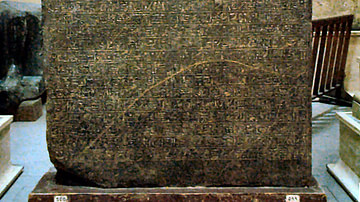
Image
Stele of Merenptah
Stele of Merenptah. Israel as a cultural entity is first mentioned in this stele of the Egyptian pharaoh Merenptah (1213-1203 BCE) in which he states that “Israel lies devastated, bereft of its seed”. (Cairo Museum, Egypt)

Image
Temple of Hathor, Abu Simbel
Temple of Hathor or "Small Temple" - constructed during the 19th Dynasty. On the facade, six colossuses represent Rameses II (1290-1223 BCE) and his wife, Queen Nefertari, shown as the Goddess Hathor. Alongside each colossus are small figures...

Image
The Battle of Hattin, 1187 CE
An illustration from the 13th century CE Chronica majora by Michael Paris showing a scene from the Battle of Hattin in 1187 CE. On the left is the Muslim leader Saladin who faces and takes from King Guy of Jerusalem the True Cross. (Corpus...

Image
Satellite Image of Canaan-Palestine-Israel
A satellite image of the region of the eastern Mediterranean variously known as Canaan, Phoenicia, Palestine and Israel throughout history.
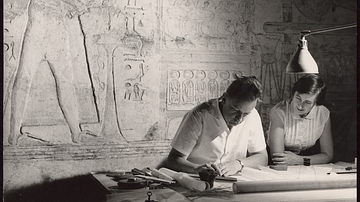
Image
Architectural Survey of Abu Simbel
Geneva architect Jean Jacquet, a UNESCO expert, makes an architectural survey of the Great Temple of Rameses II (1290-1223 BCE). It is hoped that the temple will be preserved in its entirety .
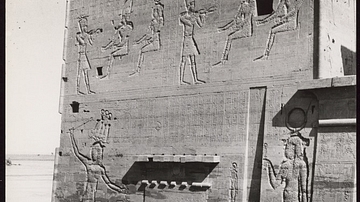
Image
Philae Temple of Isis, 1959
Detail of a pylon of the Temple of Isis on the island of Philae, freed from the waters by the decreased level of the Nile after the construction of the Aswan Dam. In the forefront are several experts sent by UNESCO to study the safeguarding...
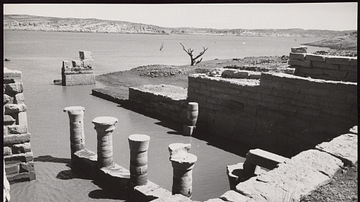
Image
Greco-Roman Temple in Nubia
Greco-Roman Temple, the largest in Nubia after the temples at Abu Simbel, constructed at the time of Augustus upon another building from the 15th century BCE.
Kalabsha, Nubia, Egypt - October 1959
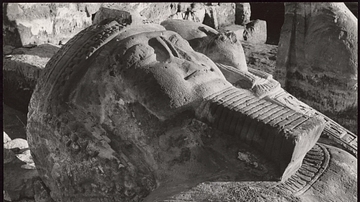
Image
Head of a Colossus, Wadi es Sebui, Nubia
Wadi es Sebui (94 miles north of Aswan, left bank). Temple of Amon Ra and Ra Horakhti built during the reign of Rameses II (1290-1223 BCE). The fallen head of a colossus lies before the pylon of the temple. The statues, sphinxes and reliefs...
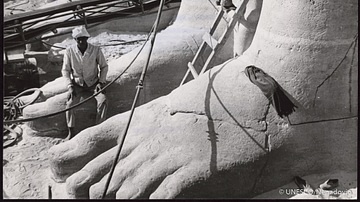
Image
Worker on Colossal Foot, Abu Simbel
The International Campaign for the safeguard of of the Nubian monuments was launched by UNESCO. A worker seated on one of the feet of the Great Temple statues during the dismantling work.
Abu Simbel, Nubia, Egypt (9 February 1966)